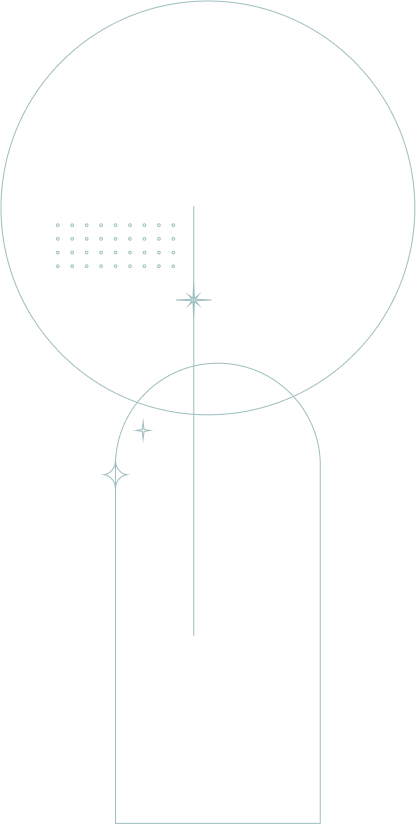
Menopause is a time of huge changes in women. From mood swings to night sweats, insomnia to weight gain, it’s too difficult to keep up! Peri- and menopausal symptoms can be addressed through various health and wellness approaches tailored to individual needs, especially skin health.
These are true, especially for menopausal skin issues. According to Balance, skin changes are common. A survey conducted in a menopause clinic revealed that around 46% of patients had skin concerns such as itching, dry skin, redness, flushing, and acne.
Various skin treatments and regimens are available to address these symptoms. Some patients undergo therapies such as laser skin resurfacing as an option to treat some of the above.
Understanding the Impact of Menopause on Skin Health
Menopause issues mainly stem from hormonal changes, which affect every aspect of a woman’s health. Hormone imbalances can lead to skin changes, but these vary in women. Some may experience dry skin, while others may have oily, acne-prone skin. Meanwhile, some women report glowing, healthy skin during menopause!
Common Skin Changes During Menopause
Skin changes during menopause vary from woman to woman. Here are the most common:
- Dryness: This is the most common menopausal skin issue, and it causes the skin to feel very itchy and dry despite moisturising.
- Thinning: Reduced collagen during menopause can make skin thinner and more prone to bruising and scratches.
- Wrinkling: Skin looks wrinkled with less volume because of reduced collagen and elastic tissue.
- Acne: Surprisingly, peri- and menopausal women can suffer from acne and pimples due to hormone imbalances.
- Hair growth: Some women may find more hair on their face (cheeks, neck and mouth area) and less on their scalp (thinning or receding hairline).
- Flushing: Most women experience flushing (around 75%). Due to increased blood flow, there is redness and warmth along the face, neck, and chest.
- Hyperpigmentation: Women may experience age spots, dark spots, or liver spots during menopause and post-menopause.
Other skin issues related to menopause are poor wound healing, fungal overgrowth, and reduced antioxidants on a cellular level.
Impact of Hormones on Skin Health
The hormonal changes during menopause are basically due to a drop in oestrogen levels. Oestrogen is critical in maintaining skin health. This hormone keeps thick, elastic, and balanced moisture. Reduced oestrogen levels during menopause may contribute to skin texture, skin type, hydration, and elasticity changes, leading to concerns like dryness, thinning, and acne.
Laser Skin Resurfacing: A Solution for Menopausal Skin
Various menopausal skin treatments are available, but most require ongoing application of chemicals and skincare that may have minimal effects at best. Laser resurfacing is a noninvasive option that does not require the application of topical products. Downtime and results vary depending on the individual’s skin type and treatment plan.
Boosting Skin Hydration and Elasticity
Ablative laser resurfacing uses focused light energy to target the outer layers of the skin while stimulating collagen production in deeper layers. As this happens, the laser also heats the dermis or the deeper skin layers, stimulating collagen production, which leads to smoother and clearer skin.
Reducing Wrinkles and Fine Lines
Non-invasive laser treatments are commonly used to address fine lines, discolouration, and hyperpigmentation. Results may vary based on individual skin conditions and treatment plans for reversing wrinkles and fine lines. As lasers remove the outer skin layers and stimulate collagen production, new skin layers look smoother, firmer, and younger!
Enhancing Radiance and Skin Tone
Laser resurfacing can rejuvenate skin during menopause by removing dull, damaged, or discoloured top skin layers and promoting collagen production. As the skin heals, patients notice improvements in skin texture and tone.
Not only is your skin lighter and brighter, but also it is firmer and tighter!
Menopausal Women Considering Laser Resurfacing
Despite the popularity of laser skin resurfacing, many women still have concerns about its safety and effectiveness. Here are some of these concerns:
Is Laser Resurfacing Safe for Menopausal Skin?
Laser skin resurfacing is considered safe when performed by a qualified practitioner. Dr Ritu individually trains all clinical staff at her practices, sets all laser doses, and oversees all treatments.
Managing Sensitivity and Discomfort
Some patients may experience temporary sensitivity during laser skin resurfacing. Our clinical staff take measures to enhance comfort and may apply localised anaesthetic cream.
Cost of Laser Skin Resurfacing for Menopausal Skin
The cost of laser skin resurfacing varies depending on factors such as the type of laser, the treatment area, and the clinic’s expertise.
Frequently Asked Questions
1. Is laser skin resurfacing suitable for menopausal skin?
Laser skin resurfacing is suitable for menopausal skin. A professional assessment is recommended to determine individual suitability. An ablative laser, for example, can remove the topmost layers of the skin and stimulate collagen production to promote clearer, smoother, and whiter skin.
2. How often should I get laser treatments for the best results?
There are no hard and fast rules regarding the number of laser treatments needed for the best results. Dr Ritu will recommend the ideal treatment schedule based on your pre-treatment assessment and progress.
3. What type of laser is best for dry, ageing skin?
The best laser treatment for dry and ageing skin is a fractionated carbon dioxide (CO2) laser or a full erbium laser because they can treat various issues, such as dryness, sun damage, uneven tone, and acne scars. These types of lasers stimulate collagen development and ensure long-lasting results.
4. Will laser resurfacing help with menopausal skin dullness?
Yes, laser resurfacing can help brighten skin, making it look radiant. This treatment removes dull, dead top skin layers and stimulates collagen production, which can improve skin tone and appearance.
5. How long do the results of laser skin resurfacing last?
The longevity of laser skin resurfacing results depends on factors such as skin type, treatment type, and aftercare.
Contact Dr Refresh Today
Laser skin resurfacing is designed to remove outer skin layers and stimulate collagen production, which may help address concerns such as sun damage, age spots, wrinkles, and acne scars. A personalised consultation can help determine if this treatment aligns with your skincare goals.
Book a consultation with Dr Ritu or her clinical staff for a thorough, personalised menopausal skin assessment. Call the Dr Refresh team to schedule your consultation at (02) 8014 6505 or click to book online.

